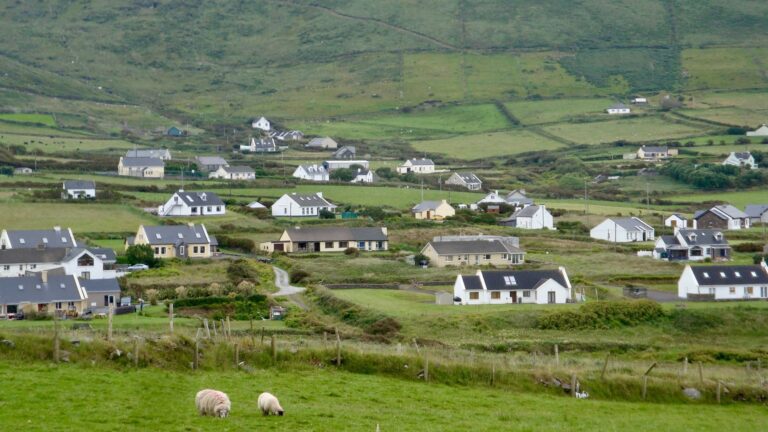
This was in the context of 2024 being one of the most significant election years in history and I quoted Ronald Reagan’s most famous quote: “The most terrifying words in the English language are – I am from the Government and I am here to help.”
In the past twelve months, we have witnessed significant changes: the breakdown of the SNP/Green collation in Scotland, the Labour Party winning a landslide majority in Westminster, the resumption of the Northern Ireland Executive, a change in the First Minister in Wales, and the two central parties in Ireland getting close to a working majority, while their previous partners, the Green Party, lost most of their seats.
The next 12 months in Ireland are crucial for our industry.
It is with Ireland I start. At the beginning of 2024 we set two broad objectives: to influence the manifestos of the main parties and to move forward the argument for a Renewable Heating Obligation. I am pleased to report that we have made progress in both areas. The two main parties likely to form a government have openly supported HVO for home heating, with Fianna Fail stating they would “promote HVO and BIOLPG as alternative fuels for homes” and Fine Gael stated they would “work to promote HVO and BIOLPG as alternative fuels for rural homes”. We also know that before the election, there were plans to announce a Renewable Heating Obligation.
The next 12 months in Ireland are crucial for our industry. As the main parties get around the negotiating table, it is critical that they fulfil their manifesto commitments to promote renewable liquid fuels in home heating and put forward a workable Renewable Heating Obligation.
In Scotland, the Scottish Government has recognised that Bioenergy can be classified as a net zero fuel and in Northern Ireland, the role of HVO and other renewable fuels has also been acknowledged.
We recently contributed to the draft Grangemouth transition plan, which outlines the strong connection between the site and our industries. We have strongly advocated for the inclusion of a biofuel plant in these plans and for every market that could utilise biofuels to be supported by government policy. This approach will ensure the best possible opportunities for the site’s success.
In Northern Ireland, we await the consultation on renewable liquid fuels. Notably, in the Executive’s initial consultation, which was predominantly heat pump-orientated, it was stated that using a heat pump with an efficiency of 2.82, “the cost of running a heat pump is less expensive compared to a gas boiler but would be more expensive compared to an oil boiler.” While this finding is not a surprise to many in our industry, it marks the first time a government organisation has acknowledged that the running cost of a heat pump is higher than an oil boiler. This revelation has significant ramifications for public discourse moving forward.
Technology-neutral ideology is essential
In the rest of the UK, we started 2024 on a positive note, having secured the Renewable Liquid Heating Fuel Obligation in the Energy Act before falling victim to the general election. The reality is that policy developments at Westminster were slow in 2024. Nevertheless, considerable effort has been expended since the election- highlights include the parliamentary select committee’s visit to the HVO village in Cornwall and meetings with over 50 newly elected MPs. The new government is clearly concentrating on achieving the clean power target by 2030. This is a highly ambitions goal, which will be much harder to achieve if renewable fuels are not given a role.
What is interesting is that the new government is restating concerns around HVO stock availability and cost but ignoring them when it comes to aviation, where these issues seem to be of no concern. It is also interesting that other governments with the same information have less concern. We will continue to make the case.
As we enter 2025, another energy-related issue brewing is that of foam insulation, which the last government promoted under subsidy schemes. It has left many unable to sell their houses due to the risks of mould and other related problems.
This situation highlights the key theme of UKIFDA’s argument: we must match the house and all of its specific characteristics with the appropriate technology. A one-size-fits-all solution has never existed, which is why there has always been a plethora of technologies and why promoting a similar multi-faceted, technology-neutral ideology is essential as we move forward.
Yes, governments have been helpful in the last year, but now, with the elections behind us, we hope for some stability with a strong focus on the key issues that really concern consumers and a growing realisation it is going to take many solutions to address decarbonisation.
Image from Dreamstime
